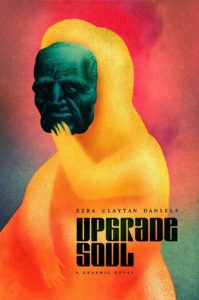
We’re a little past Women in Horror Month, but why limit ourselves to one month a year? There are way too many awesome women who are a part of the horror community to do that. Monster Librarian primarily reviews fiction, but I actually like reading nonfiction, too, as it widens my knowledge of horror and I think makes me a better reviewer. Also, despite academic jargon, the ideas can be really compelling. Any researcher who doesn’t have the resources of a university or similar institution knows the challenge of actually getting your own stuff written, researched, and published. Enter Cecilia Abate, aka Horror Scholar, founder of Horror Scholar Journal, a new online journal that provides an avenue for independent researchers to get their work published. Reviewer Lizzy Walker had the opportunity to interview Cecilia recently, so read on to learn more about her!
Lizzy: Hi, Cecilia! Tell Monster Librarian readers about yourself.
Cecilia: Hi there! I’m an independent horror academic & researcher with a focus in data-heavy quantitative analysis. I run a research brand under the title Horror Scholar and am currently employed at Google during my daylight hours.
Lizzy: Describe your path to horror studies. How did this become an interest for you?
Cecilia: Actually, total accident. As I was getting through my BA, I remember *hating* pop culture studies and literary analysis. I was rereading Frankenstein for a sci-fi studies course and I bought an edition which had about 4 analytical essays included in the back. I remember flipping through them and just scoffing, being like, “Oh my god, who cares? The monster is a monster, leave it alone.”
Somehow, in the next few years, that opinion completely reversed. I did my last essay of my college career on colonialism in The Nightmare Before Christmas. And as I was laughing at myself writing it, I started to go “oh no… this is actually a lot of fun.”
Lizzy: What made you start Horror Scholar Journal?
Cecilia: Frustration and a drive to lead a project, honestly. At the time—I don’t fully remember the line of thought, but I remember being frustrated at the gap between being an independent academic (not backed by a university, therefore less credible) and needing my work published. And I sort of thought, “You know what? I’m gonna do it myself. I’m gonna make a change here.”
Lizzy: The inaugural Issue of Horror Scholar Journal which focuses on American Horror Story was great. Could you talk about your American Horror Story research you started prior to the journal?
Cecilia: Thank you! So in 2015, I started conceptualizing a thesis about the usage of sexual violence on AHS, but I didn’t have the numbers to back it up, which resulted in me starting a data project to record and process all the incidents of sexual violence on the show. I’ll be doing that until the show ends and I’m currently almost caught up – I’ve got to finish the numbers for the previous season.
Lizzy: So, Hannibal is the focus of Issue 2. What made you want to focus on this iconic horror figure?
Cecilia: One of the things that pushed me was the passion of his fans! The Hannibal fandom is SO ALIVE. While I know is most certainly due to the 2013 show, there are still tons and tons of classic Lecter fans out there. When I put the call for theme suggestions out on Twitter, the Hannibal fans answered strongest of all. It’s a rich canon, the books & movies are great, and it made for a bunch of very strong essays.
Lizzy: What can we expect for more themes of future issues of Horror Scholar Journal?
Cecilia: Phew. My girlfriend most recently suggested the Alien franchise, which is a pretty strong bid. Ideally, I’d like to take on things that aren’t the most obvious suggestions. Like, I’d never do “Dracula” or “Frankenstein” because the topics have been diced every which way already.
Lizzy: Why should librarians recommend Horror Scholar Journal as a resource?
Cecilia: I’ve always seen librarians as a particularly revolutionary and rebellious arm of academia, so I think my goals for Horror Scholar align with those sentiments – accessibility (both intellectually and financially), critical thought, creativity.
Lizzy: Do you have any upcoming projects you would like to mention?
Cecilia: I’m prepping a paper on vampire identity and social strata in What We Do In The Shadows and Being Human (UK). While I’m secretly not hyped for this paper, I AM hyped for attending the Popular Culture Association Conference for the first time to present it!
Lizzy: How can people get in touch with you for more information?
Cecilia: My email, horrorscholar@gmail.com is fine – OR we’re available on FB and Twitter! www.facebook.com/horrorscholar or www.twitter.com/scholarhorror.







Follow Us!